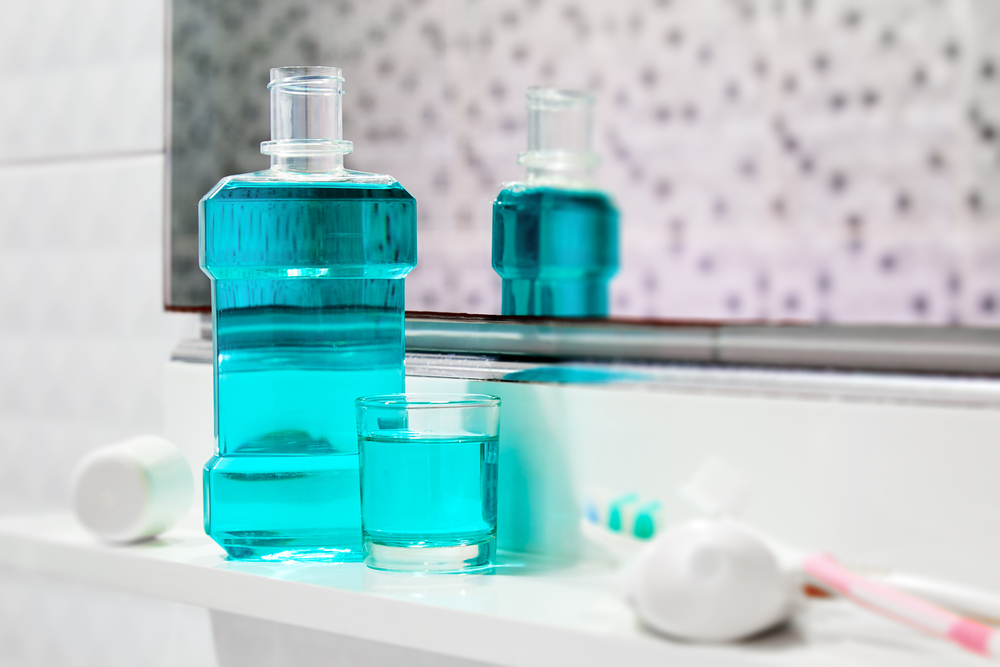According to a research study done at Pennsylvania State College of Medicine, mouthwashes may have the ability to reduce the Covid-19 virus load
The transmission of Covid-19 happens through aerosolised respiratory droplets. The most common symptoms of Covid-19 are coughing and sneezing, that are associated with the formation of aerosols. Anybody infected with the virus initially shows mild or no symptoms. However, they can easily spread the virus through droplets. These droplets make their way into the nasal and oral cavities making it the entry point for the virus.
A research study conducted at the Penn State College of medicine found that certain oral antiseptics and mouthwashes may have the ability to inactivate human coronaviruses. The results indicated that mouthwashes and certain similar products might have certain germ-killing properties that can be useful for reducing the viral load of coronavirus in the mouth after infection.
A group of physicians and scientists led by Craig Meyers, a professor of microbiology, immunology, obstetrics and gynaecology, tested several oral and nasopharyngeal rinses in a laboratory setting for their ability to inactivate human coronaviruses, which are similar in structure to SARS. While there are clear differences in the pathogenicity of these viruses (SARS and Covid-19), they are in the same virus family, have very similar structures, and are both human respiratory pathogens.
The products evaluated include a 1% solution of baby shampoo, a neti pot, peroxide sore-mouth cleansers, and mouthwashes.
Detergents are known virucides, and the use of intranasal surfactants, including 1% baby shampoo has been demonstrated to be safe and effective as a treatment for chronic rhinosinusitis. This led to the question whether a 1% baby shampoo could inactivate human coronavirus.
Over‐the‐counter mouthwash generally claims to speed the wound healing process, have antiseptic properties, prevent gingivitis, and kill germs that cause bad breath. The researchers found that several of the nasal and oral rinses had a strong ability to neutralize human coronavirus, which suggests that these products may have the potential to reduce the amount of virus spread by people who are Covid-19 positive.
They treated solutions containing a strain of human coronavirus, which served as a readily available and genetically similar alternative for SARS, with the baby shampoo solutions, various peroxide antiseptic rinses and various brands of mouthwash. They allowed the solutions to interact with the virus for 30 seconds, one minute and two minutes, before diluting the solutions to prevent further virus inactivation.
According to Meyers, the outer envelopes of the human coronavirus and SARS are genetically similar, so the research team hypothesizes that a similar amount of SARS may be inactivated upon exposure to the solution.
“While we wait for a vaccine to be developed, methods to reduce transmission are needed, and the products we tested are readily available and often already part of people’s daily routines” said Meyers.
The 1% baby shampoo solution, which is often used by head and neck doctors to rinse the sinuses, inactivated greater than 99.9% of human coronavirus after a two-minute contact time.
Several of the mouthwash and gargle products also were effective at inactivating the infectious virus. Many inactivated greater than 99.9% of virus after only 30 seconds of contact time and some inactivated 99.99% of the virus after 30 seconds.
The results with mouthwashes are promising and add to the findings of a study showing that certain types of oral rinses could inactivate SARS in similar experimental conditions.
In addition to evaluating the solutions at longer contact times, they studied over-the-counter products and nasal rinses that were not evaluated in the other study. Meyers said the next step to expand upon these results is to design and conduct clinical trials that evaluate whether products like mouthwashes can effectively reduce viral load in covid-19 patients.
Source: Journal of Medical Virology
Research Title: Lowering the transmission and spread of human coronavirus








